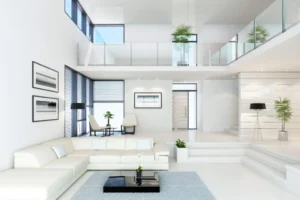Survival Tips for Getting Along with Your Landlord

The landlord-tenant relationship can be complex because you’re both taking a chance when you sign a lease. And as a result of that document, each individual becomes reliant on the other. Landlords are putting their money on the line. The landlord is also heavily reliant on the renter. Uncomfortable, hazardous, filthy, or otherwise unlivable environments can be very stressful. While a negative scenario can be traumatic for both parties involved, it can also be the opposite. A good connection with your landlord will keep you both safe, happy, and sane.
Be honest
It’s nearly impossible to get along with your landlord after a bad start, so make an effort to establish a positive relationship right away. If (and when) your landlord finds out, small lies like hiding Fido or having an extra roommate can cause immediate suspicion and anxiety. Make sure you’re being entirely honest from the moment you sign the lease and walk into the apartment.
Pay on time
A tenant who does not pay rent on time or in full is the worst thing that can happen to a landlord-tenant relationship. It’s better to get your rent in early or on time, even if they give you a 2-5 day grace period before it’s formally considered late. However, rent concerns have an impact on more than just the landlord and your relationship. If you pay late frequently enough, your credit will suffer, and your landlord will most likely mention it if you are ever asked for a reference.
Be kind
The better friends you are with your landlord, the more likely he will be to offer you some wiggle room if any problems develop. If you treat him with respect whenever you speak with him on the phone or if he has to visit the house, he will be significantly more likely to trust you and value your tenancy. There’s nothing wrong with a little small talk now and then, and if you get a job promotion or start seeing someone new, you might want to let him know. They demonstrate that you are a productive and trustworthy individual who will adhere to the lease agreement and depart the space in the same condition in which you found it.
Open communication
If you have a problem with your stove, heat, sink, toilet, or anything else, please notify your landlord as soon as possible. (S)he’ll have no way of knowing unless you tell him/her, so the longer you wait, the longer you’ll have to live in a space that isn’t working properly. Also, if you don’t solve any concerns in the apartment right away, it’s likely that your landlord will blame you for the problem when it’s time for you to move out, which could have a negative impact on getting your security deposit back. Furthermore, the longer these issues are ignored, the more expensive they may become to resolve.
Be patient
The majority of landlords manage properties to supplement their income. They’re usually already employed in another field, and they’ve probably got a family. So, if your demands aren’t always met right away, or if your landlord takes a few days to answer a phone call or an email, keep cool. They are likely not neglecting you on purpose because they have busy lives. On a follow-up call, leave a polite voicemail or send them a brief email reminding them of your problem. If your hot water goes out for a day, don’t lose your cool.
Follow your lease
Respect the lease’s rules, which they’ve taken the trouble to spell out. Remember that the lease is in place to protect you both, and breaking it could result in both personal and legal problems. Make sure you respect and care for their property. With mortgage interest rates at an all-time low, many people are wondering should I rent or buy a house. When weighing the two choices, the decision to buy will be influenced by a variety of factors like your financial situation and future ambitions. A smaller monthly payment is frequently associated with being a homeowner. Homeownership is more than simply a financial transaction; it’s a way of establishing roots and a lifestyle in a place where you feel at ease.






